-
Paul G. Auwaerter, MD MBA
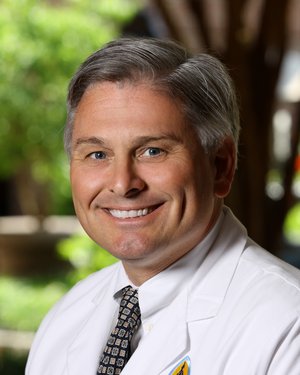
- Clinical Director, Division of Infectious Diseases
- Professor of Medicine
Expertise: Infectious Diseases
Research Interests: Point of Care Information Technology, Tick borne diseases
-
John W. Baddley, MD MSPH

- Professor (PAR) of Clinical Medicine
Expertise: Infectious Diseases
Research Interests: <p>Fungal Infections</p> <p>Infections among immunocompromised patients </p>
-
Sara Cosgrove, MD

- Director, Johns Hopkins Hospital Department of Antimicrobial Stewardship
- Professor of Medicine
Expertise: Infectious Diseases
Research Interests: Development of tools and programs to promote rational use of antimicrobials, Epidemiology and management of S. aureus bacteremia, Epidemiology and outcomes of antimicrobial resistance, Prevention of hospital-acquired infections
Research Publications
-
Valeria Fabre, MD
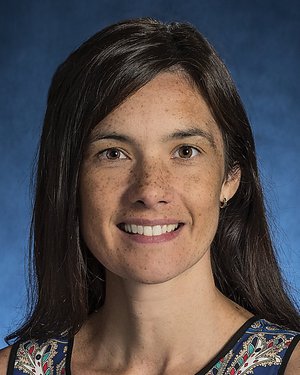
- Associate Professor of Medicine
Expertise: Infectious Diseases
Research Interests: Antimicrobial Stewardship, Diagnostic Stewardship
Research Publications
-
Andrew Karaba, MD PhD
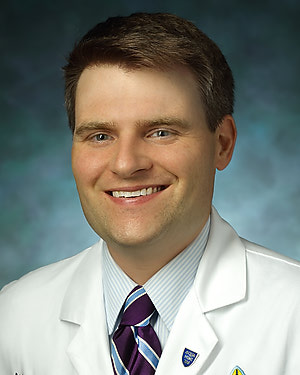
- Assistant Professor of Medicine
Expertise: Infectious Diseases
Research Publications
-
Sara Karaba, MD PhD MHS
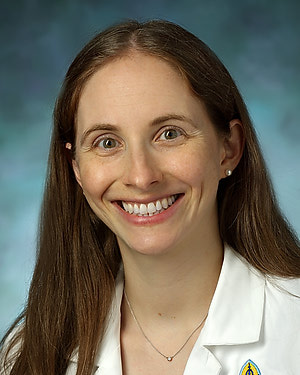
- Associate Director, Johns Hopkins Bayview Medical Center Antimicrobial Stewardship Program
- Assistant Professor of Medicine
Expertise: Infectious Diseases
-
Olivia Saturno Kates, MD MA
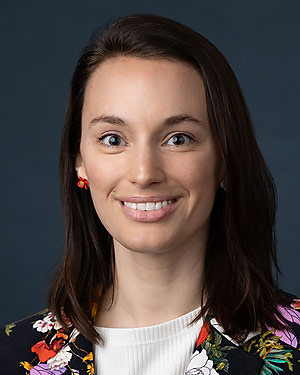
- Assistant Professor of Medicine
Expertise: Infectious Diseases
Research Interests: Ethical issues in infectious diseases and transplantation, vaccination policies
-
Christopher Lippincott, MD MPH

- Clinical Director, Johns Hopkins Center for Nontuberculous Mycobacteria and Bronchiectasis
- Assistant Professor of Medicine
Expertise: Infectious Diseases
-
Michael Melia, MD
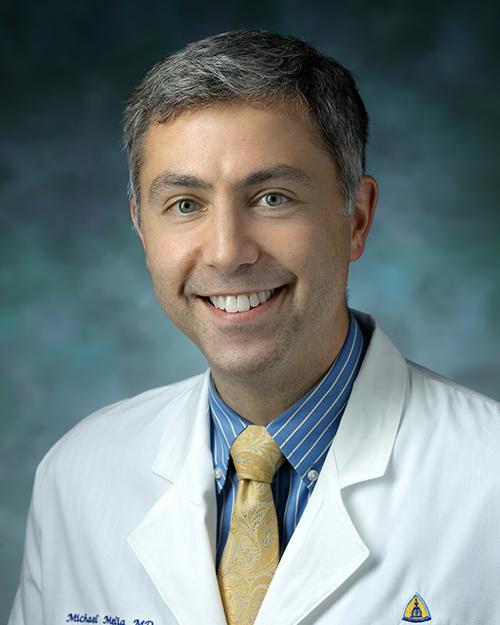
- Vice Chair for Education, Department of Medicine
- Associate Professor of Medicine
Expertise: Infectious Diseases
Research Interests: <p>medical education, coaching in medicine</p>
-
Cynthia Louise Sears, MD

- Bloomberg-Kimmel Professorship of Cancer Immunotherapy
- Professor of Medicine
Expertise: Infectious Diseases
Research Interests: bacteroides fragilis infections, cryptosporidiosis, food borne disease, Infectious diarrheal diseases
Research Publications
-
Shmuel Shoham, MD
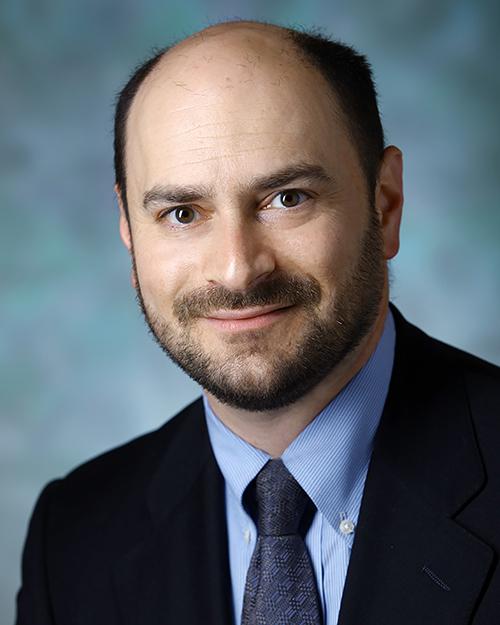
- Professor of Clinical Medicine
Expertise: Infectious Diseases
Research Interests: antibiotic resistant infections in immunocompromised patients, invasive fungal infections, respiratory viral infections in immunocompromised patients
-
Pranita Tamma, MD MPH
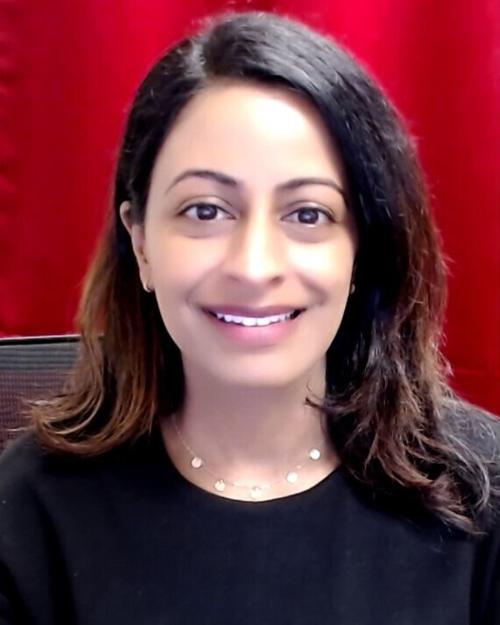
- Associate Professor of Pediatrics
Expertise: Pediatric Infectious Diseases
Research Interests: Diagnosing and treating multidrug-resistant infections, improving antibiotic use among children and adults
Research Publications
Advanced Topics in Clinical Infectious Diseases and Antimicrobial Resistance Online Course (With CME)
Enduring Material
Available April 1, 2025 - March 31, 2028
This activity has been approved for AMA PRA Category 1 Credits™.
Course Description
Infectious disease remains a dynamic and fascinating field replete with new challenges facing outpatient primary care providers and hospital medicine practitioners alike. This program is designed to explore major infectious diseases topics of particular relevance.
This online course on advanced topics in infectious diseases is designed to supply primary care providers, residents, infectious disease specialists, hospitalists, and advanced practice providers with a thorough understanding of various infectious diseases commonly encountered in inpatient and outpatient settings. Through five comprehensive online modules, healthcare professionals will develop the knowledge and skills necessary to effectively address, manage, and prevent infectious diseases, while promoting optimal patient outcomes. The program will cover a range of topics, including common inpatient consultations ranging from prosthetic joint infections and osteomyelitis to endocarditis and bloodstream infections. Modules included in depth didactics on the diagnosis and management of transplant and oncology related infectious diseases including invasive fungal infections, herpesviruses, and other opportunistic infections in the immunosuppressed host. We comprehensively review new IDSA guidelines related to antimicrobial resistance and management of DTR-Pseudomonas, ESBL-producing organisms, KPC and NDM producing organisms, and other common pathogens including Stenotrophomonas and Acinetobacter.
Who Should Enroll
This activity is intended for physicians, physician assistants, nurse practitioners, nurses, advanced practice providers, and allied health professionals in the fields of emergency medicine, family practice, infectious diseases, internal medicine, and public health.
Objectives
After participating in this activity, the learner will demonstrate the ability to:
- Recall the diagnosis and management of multi-drug resistant organisms.
- Explain common infections associated with transplantation or malignancy, including common pathogens, diagnosis, and management strategies.
- Express comprehensive knowledge of common inpatient infectious diseases consultations including endocarditis, staph aureus bacteremia, osteomyelitis and joint infections, abdominal infections, and CNS infections.
- Describe the evaluation and management of invasive fungal infections, herpesviruses, and other opportunistic infections associated with immunosuppressed hosts.
Accreditation
-
The Johns Hopkins University School of Medicine is accredited by the Accreditation Council for Continuing Medical Education (ACCME) to provide continuing medical education for physicians.

-
The Johns Hopkins University School of Medicine designates this enduring material activity for a maximum of 11.5 AMA PRA Category 1 Credits™. Physicians should claim only the credit commensurate with the extent of their participation in the activity.
-
It is the policy of the Johns Hopkins School of Medicine that the presenter and provider globally disclose conflicts of interest. The Johns Hopkins School of Medicine OCME has established policies in place to identify and mitigate relevant conflicts of interest prior to this educational activity. Detailed disclosure will be made prior to presentation of the education.
-
American Board of Internal Medicine’s (ABIM) Maintenance of Certification (MOC) Program
Successful completion of this CME activity, which includes participation in the evaluation component, enables the participant to earn up to 11.5 MOC points in the American Board of Internal Medicine’s (ABIM) Maintenance of Certification (MOC) program.
Participants will earn MOC points equivalent to the amount of CME credits claimed for the activity. It is the CME activity provider’s responsibility to submit participant completion information to ACCME for the purpose of granting ABIM MOC credit.
-
American Academy of Nurse Practitioners National Certification Program accepts AMA PRA Category 1 Credit™ from organizations accredited by the ACCME.
American Nurses Credentialing Center (ANCC) accepts AMA PRA Category 1 Credit™ from organizations accredited by the ACCME.
PAs may claim a maximum of 11.5 Category 1 credits for completing this activity. NCCPA accepts AMA PRA Category 1 Credit™ from organizations accredited by ACCME or a recognized state medical society.
The Johns Hopkins University has approved this activity for 11.5 contact hours for non-physicians.
Agenda/List of Talks/Index
-
Endocarditis: Diagnosis & Management of Common Organisms (20 minutes)
Sara Karaba, MD, PhD, MHSCardiac Device Infections (20 minutes)
Sara Karaba, MD, PhD, MHSUrinary Tract Infections (20 minutes)
Michael Melia, MD
Septic Arthritis and Prosthetic Joint Infections (20 minutes)
Christopher Lippincott, MD, MPHOsteomyelitis (vertebral osteo, sacral decubitus ulcers) (20 minutes)
James Ladd, MDStaph Aureus Bacteremia: Part 1 (20 minutes)
Sara Cosgrove, MDStaph Aureus Bacteremia: Part 2 (20 minutes)
Sara Cosgrove, MDEvaluation of New-Onset Fever in Hospitalized Patients (15 minutes)
Valeria Fabre, MDC. difficile: Initial Diagnosis and Management (10 minutes)
Cynthia Sears, MD
Diverticulitis and Biliary Tract Infections (20 minutes)
Sara Cosgrove, MD
Candidemia (15 minutes)
John Baddley, MD, MSPH -
Meningitis and Meningoencephalitis Part 1 (Encephalitis) (20 minutes)
Paul Auwaerter, MD, MBAMeningitis and Meningoencephalitis Part 2 (Meningitis) (20 minutes)
Paul Auwaerter, MD, MBAMeningitis and Meningoencephalitis Part 3 (Nosocomial, CNS shunts, and
other) (20 minutes)
Paul Auwaerter, MD, MBACryptococcal and Other Fungal Meningoencephalitis (15 minutes)
John Baddley, MD, MSPH -
Ventilator/Healthcare Associated Pneumonia ( 20 minutes)
Valeria Fabre, MD
Community Acquired Pneumonia Management in Hospitalized Patients (20 minutes)
Michael Melia, MD
Aspergillosis and Fungal Pneumonia (15 minutes)
Shmuel Shoham, MD
Endemic Fungal Infections (15 minutes)
John Baddley, MD, MSPH -
UTI and Recurrent UTI (10 minutes)
Olivia Kates, MD, MAInvasive Fungal Infections (20 minutes)
Shmuel Shoham, MDNeutropenic Fever & Oncology Emergencies (20 minutes)
Veronica Dioverti, MDNocardia, Mycobacteria, PJP, and Anything Else! (20 minutes)
Robin Avery, MDVaccination (15 minutes)
Olivia Kates, MD, MALiving Safely (15 minutes)
Olivia Kates, MD, MA -
SOT ID 101:
Introduction to Infections in Solid Organ Transplant (15 minutes)
Robin Avery, MDTransplant Immunology & Rejection (15 minutes)
Robin Avery, MDImmunosuppression Overview (including drug interactions) (15 minutes)
Robin Avery, MDDonor/Recipient Considerations (understanding serostatus, screening,
prophylaxis) (15 minutes)
Olivia Kates, MD, MAONC ID 101:
HSCT Types and Timelines (15 minutes)
Veronica Dioverti, MD
GVHD & More (ID mimics - CRS, Sweets, Leukemia Cutis) (20 minutes)
Veronica Dioverti, MD
Common Chemotherapy and Immunotherapy Considerations (15 minutes)
Robin Avery, MDHerpesviruses:
CMV (15 minutes)
Robin Avery, MDHSV, VAV, and HHV-6 (15 minutes)
Andrew Karaba, MD, PhDEBV, HHV-8 and PTLD (15 minutes)
Olivia Kates, MD, MA -
Management of DTR PsA (15 minutes)
Pranita Tamma, MD, MPHManagement of ESBL-Producing Enterobacterales (15 minutes)
Pranita Tamma, MD, MPHManagement of KPC-Producing Enterobacterales (15 minutes)
Pranita Tamma, MD, MPHManagement of NDM-Producing Enterobacterales (15 minutes)
Pranita Tamma, MD, MPHManagement of Stenotrophomonas Maltophila (15 minutes)
Pranita Tamma, MD, MPHManagement of AmpC Beta-lactamase-producing Enterobacterales (15 minutes)
Pranita Tamma, MD, MPHManagement on CRAb (15 minutes)
Pranita Tamma, MD, MPHSpectrum of Activity of Commonly Used Antibiotics (15 minutes)
Sara Cosgrove, MDBasic Antifungals (15 minutes)
Alice Hsu, PharmD, BCIDPNovel Antifungals for Difficult to Treat Yeast and Molds (15 minutes)
Alice Hsu, PharmD, BCIDP
Johns Hopkins Infectious Diseases Faculty Speakers
Activity Director: Maunank Shah, MD, PhD, Professor of Medicine
Guest Faculty Speakers
Alice Hsu, PharmD, BCIDP
Policies
-
The Johns Hopkins School of Medicine Office of Continuing Medical Education (OCME) is committed to protecting the privacy of its members and customers. If you choose to provide us with personal information by sending an email, or by filling out a form with your personal information and submitting it through our Web site, we use that information to respond to your message and to help us provide you with information, products, or services that you request. We do not give, share, sell, or transfer any personal information to a third party unless required by law. The complete University privacy policy may be accessed via the OCME Web site.
-
The Johns Hopkins School of Medicine takes responsibility for the content, quality and scientific integrity of this CME activity.
-
All rights reserved – The Johns Hopkins School of Medicine. No part of this program may be used or reproduced in any manner whatsoever without written permission except in the case of brief quotations embodied in articles or reviews.
-
The opinions and recommendations expressed by faculty and other experts whose input is included in this activity are their own. This enduring material is produced for educational purposes only. Use of Johns Hopkins School of Medicine name implies review of educational format design and approach. Please review the complete prescribing information and safety profile of specific drugs or combination of drugs, including indications, contraindications, warnings, and adverse effects before administering pharmacologic therapy to patients.
-
As a provider approved by the Accreditation Council for Continuing Medical Education (ACCME), Johns Hopkins University School of Medicine Office of Continuing Medical Education (OCME) requires attested and signed global disclosure of the existence of all financial interests or relationships with ineligible companies from any individual in a position to control the content of a CME activity sponsored by OCME.
-
I certify that I am participating in a Johns Hopkins University School of Medicine CME activity for accredited training and/or educational purposes.
I understand that while I am participating in this capacity, I may be exposed to “protected health information,” as that term is defined and used in Hopkins policies and in the federal HIPAA privacy regulations (the “Privacy Regulations”). Protected health information is information about a person’s health or treatment that identifies the person.
I pledge and agree to use and disclose any of this protected health information only for the training and/or educational purposes of my visit and to keep the information confidential. I agree not to post or discuss this protected health information, including pictures and/or videos, on any social media site (e.g. Facebook, Twitter, etc.), in any electronic messaging program or through any portable electronic device.
I understand that I may direct to the Johns Hopkins Privacy Office any questions I have about my obligations under this Confidentiality Pledge or under any of the Hopkins policies and procedures and applicable laws and regulations related to confidentiality. The contact information is: Johns Hopkins Privacy Office, telephone: 410-614-9900, HIPAA@jhmi.edu
Course Requirements
-
There are no prerequisites to participate in this activity
-
The course will take place on the Canvas LMS (Canvas.jhu.edu). You will need the ability to log on to the platform, preferably using Google Chrome, to complete the content, which will include videos, readings, and assignments. You may also need to take part in other activities on Canvas.jhu.edu.
Hardware requirements: computer; webcam; microphone and speakers or headset.
Software requirements: Google Chrome web browser; access to Canvas.jhu.edu; Zoom web conferencing; Microsoft Office or similar; email -
Post activity, an online evaluation form will be available to attendees to evaluate the activity and identify future educational needs. Upon completion of the evaluation, the learner must attest to the number of hours in attendance. A certificate of attendance will be available immediately for download or print. The last day to evaluate the material and attest to your credits is May 15, 2028.
-
A post-test will be conducted at the conclusion of the activity. A grade of at least 70% within three attempts is needed to receive CME credit.
-
The Johns Hopkins School of Medicine fully complies with the legal requirements of the ADA and the rules and regulations thereof. Please notify us if you have any special needs.
-
E-mail the Office of CME: cmenet@jhmi.edu
For general information, please visit the activity webpage at
https://hopkinscme.cloud-cme.com/aph.aspx?P=5&EID=59127
Johns Hopkins Department of Medicine, Division of Infectious Diseases: https://www.hopkinsmedicine.org/infectious-diseases
To participate in additional CME activities presented by the Johns Hopkins School of Medicine Continuing Medical Education Office, please visit https://hopkinscme.cloud-cme.com
Follow the Johns Hopkins School of Medicine Continuing Medical Education Office on Twitter: http://twitter.com/HopkinsCME
Follow the Johns Hopkins School of Medicine Continuing Medical Education Office on Facebook: http://www.facebook.com/HopkinsCME
Check out the CME mobile app CloudCME.
Organization Code: HopkinsCME
For technical assistance with website, CloudCME or credits, please visit our tech support help page: https://hopkinscme.cloud-cme.com/about/help -
The Johns Hopkins School of Medicine did not solicit or receive commercial funding from any ineligible companies, including pharmaceutical and medical device manufacturers, for this activity.


